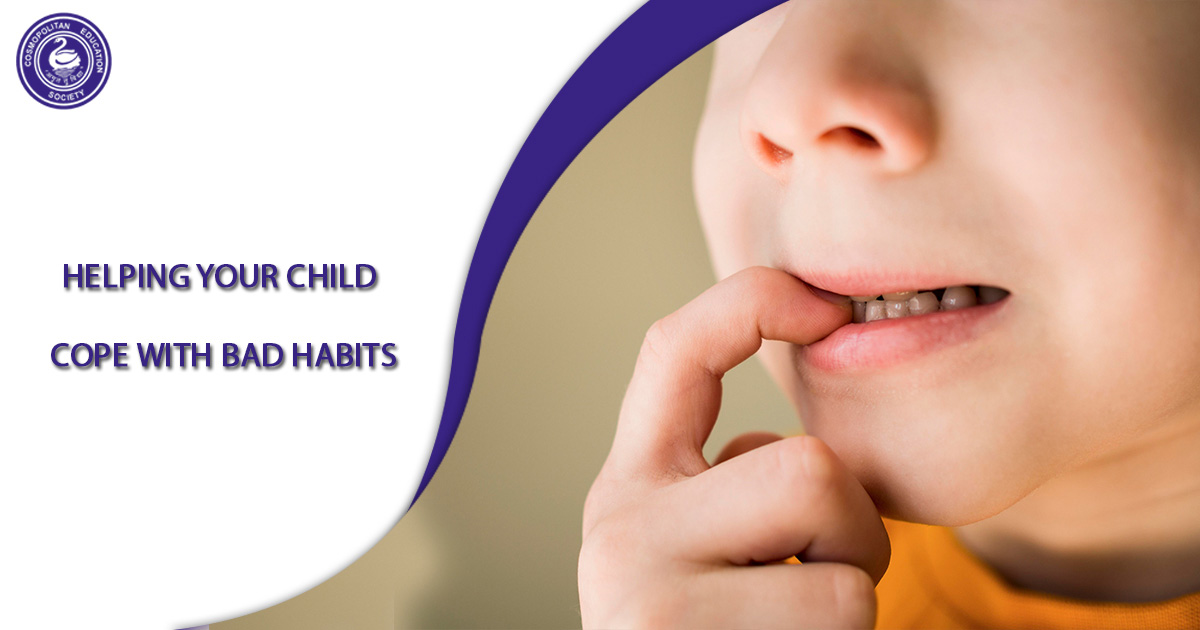
Helping your child cope with bad habits
A habit is a pattern of action that is done often/repeatedly and the child who is performing it is usually unaware of it. While children are blissfully ignorant about how it occurs so often, their parents are not so fortunate. Don’t be astonished if your child has one hand put in his or her mouth and the other entwined in his or her hair on a regular basis.
Experts aren’t always clear on why an action becomes a habit, but they do know that it’s a taught behaviour with a favourable effect for the youngster.
Coping With Your Child’s Bad Habits
The good news is that most habits fade away with time, approximately when a child reaches school age. This is more so because the world starts judging and noticing the minutest things.
However, if you believe it is time to assist your child in breaking a habit, follow these steps:
1. Calmly point out what you don’t like and why it is bad:
This method can be used with children as young as three or four years old to help raise awareness that they are currently having certain bad habits. Something along the lines of, “When you bite your nails, it bothers me. It does not appear to be attractive. Could you perhaps refrain from doing so?” You can also use reverse phycology by showing some harsh google pics of someone’s bitten nails. This not only answers why but also shows the future if you may continue the same behaviour. Most importantly, we recommend you don’t lecture the next time you notice someone gnawing their nails. Punishment, ridicule, or criticism may lead to an increase in conduct.
2. Get Involved with your child in the process of breaking the habit:
If your 5-year-old comes home from kindergarten crying because the other kids teased him about his thumb sucking, see it as a request for assistance. Parents can ask simple questions like, “Do you want to break this bad habit?” or “ will you do as I say then you will not be teased again?” Come up with some ideas and partner your child to break some bad habits.
3. Suggest alternative behaviours:
If your youngster bites his nails, for example, instead of saying, “Don’t bite your nails,” say, “Let’s wiggle our fingers.” Distract your child in other behaviours involving their hands and fingers. This will help you become more aware of the behaviour and may also serve as a reminder. You can also provide other kinds of productive distractions like, helping you in the kitchen or working on a craft, to keep your child’s attention occupied with a sport.
4. Reward and praise on the smallest milestone achieved in breaking the habit:
Allow your child girl to wear nail polish, for example, if she allows her nails to grow. Alternatively, whenever your son refrains from sucking his thumb, praise him and reward him with a sticker or draw a star on his hands with a pen. Once they achieve a greater milestone you can increase the reward to chocolate or an outing to their favourite park.
5. Reward consistently:
If you don’t pay attention to positive behaviour, it will fade away over time. Before the old habit vanishes, the new, positive one must be firmly formed.
It is vital to understand that children can be motivated to stop a bad habit. And, because habits take time to form, it will take time for them to be replaced by new behaviours, so we advise you as a parent to be patient yet consistent. Here are some efficient ways you can celebrate your child’s success be it defeating a bad habit or achieving any milestones in life.
Conclusion
Children adopt bad habits easily because of various varied reasons. But if those habits continue for long it will create problems in their personality development and also hinder social acceptance. With the coping tips mentioned above, you can wean off your child’s bad habits and eventually give them up gracefully.
